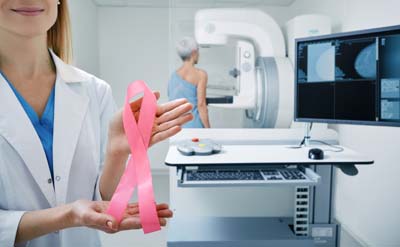Visit Your Primary Care for a Health Check Up

A consistent relationship with your primary care physician or internist opens the door to numerous opportunities and advantages. This article will cover these advantages, what to expect when undergoing a health checkup, and how to choose the right primary care physician for your needs.
Why primary care checkups are essential
Benefits of regular health checkups
Undergoing regular health checkups with a primary care physician is the first line of defense in preventing serious health conditions. Regular checkups allow the internist to spot and treat conditions before they become life-altering or life-threatening. For example, a diabetes diagnosee can greatly benefit from yearly checkups to help determine if there need to be medication changes or alternative treatment options.
Maintaining regular health checkups is also beneficial as patients age. As patients age, different exams, such as colonoscopies, mammograms, pap smears, prostate checks, and more, are recommended. Having an internist eliminates the need for patients to know or remember when each exam is required because they house all their medical records.
Primary care physicians can also offer patients quick and easy access to vaccines. Vaccinations include influenza, COVID-19, human papillomavirus (HPV), and more.
How to prepare for a health checkup
If one has an upcoming healthcare checkup, there are several things they can do to help prepare, especially if they have never seen the primary care provider before. Before the healthcare checkup, list any symptoms or concerns one has been experiencing in the past few months, including if they are constant or intermittent. This can include anything from a persistent cough to a new rash.
New patients should also bring any medical records or test results from previous medical appointments in case the previous facility could not transfer records on time. Additionally, list any medications one takes, over-the-counter or prescription, including name, dosage, and frequency.
During the checkup, patients may need to change into a medical gown or remove certain clothing for a physical exam. Wear loose, comfortable clothing that is easy to remove or manipulate to make the process go smoothly.
Lastly, it is important for patients to arrive at least 20 minutes before their appointment to fill in their intake forms. Doing so will allow us to get patients to their appointment with the primary care physician on time while being considerate of patients coming behind them.
What to expect during a health checkup
During the health checkup, the primary care physician will perform a physical exam, review medical history, address health concerns, and perform screenings.
Physical Exam
The physician performs a physical exam for patients of all ages to assess their overall health. This may include checking blood pressure, heart rate, and breathing rate. They may also examine one’s eyes, ears, nose, throat, and skin. In addition, depending on their age and medical history, some patients may receive a breast exam or pelvic exam.
Medical History Review
The primary care physician will review the patient’s medical history, whether another facility has sent them over or the patient has brought the information with them. This information can help the physician better understand one’s health and provide more personalized care.
Health concern discussion
Reviewing patients’ health concerns, no matter how small, can be beneficial. Many serious conditions can begin as small symptoms, such as a new mole, cough, or intermittent headaches. After addressing the health concern, the physician can recommend personalized treatment plans, including lifestyle changes, medications, or screening tests if suspected of a serious condition.
Screening tests
Depending on one's age and medical history, the primary care physician may recommend certain screening tests during the health checkup. This can include blood tests, mammograms, or colonoscopies. Screening tests can help detect potential health problems early when they are most treatable.
How often should one receive a health checkup?
How often one should see their primary care physician depends on their health, life stage, and other factors. Most medical professionals will agree that adults aged 18 to 39 years old with optimal health receive a checkup every two to three years; those aged 40 to 64 years old should begin receiving annual checkups as more factors will need to be considered during these ages.
Choosing the right primary care physician
Choosing the right board-certified primary care physician is not a decision to be taken lightly. Before making a decision, one needs to consider their health needs. For example, do they require a physician specializing in a particular area, like cancer, women’s health, or geriatrics? Or are they in optimal health and want access to a doctor for checkups and just-in-case scenarios?
To help make the right decision, we encourage patients to review the physician’s credentials and their experience in the services one is seeking.
Find your new primary care physician
We hope this article was informative. If you need to schedule your annual checkup, contact us. Our team will pair you with our primary care physician to help ensure the integrity of your health.
Request an appointment here: https://hoadly.millenniummedicalcare.com or call Millennium Medical Care Manassas at (703) 673-1558 for an appointment in our Manassas office.
Check out what others are saying about our services on Yelp: Primary Care in Manassas, VA.
Recent Posts
Searching for birth control near me online can be a good start in your search for the right form of contraception. But the most ideal way to get a birth control product is to see a doctor. But what if you cannot see an OB-GYN? You can see a primary care doctor instead. Here are…
Diagnostic and screening mammogram are an important tool in diagnosing breast cancer. By taking an X-ray of the breast (i.e., a mammogram), primary care physicians can detect tumors and calcium deposits (microcalcifications). This article will cover screening mammograms, why someone may need one, and what to expect when receiving one.The primary difference between diagnostic and…
Holistic medical care is a foundation in modern medicine. This branch of medical care offers a complementary approach that addresses a wide range of medical concerns, considering the interconnection of the mind, body, and spirit. It revolves around the overall well-being of adult patients, implementing accurate diagnoses and treatments for various medical conditions while recommending…
Wondering where to get a sports physical for your child? Sports physicals are important, as they help to ensure that a child is in good shape before playing a sport. One place to get a sports physical is a primary care clinic.Sports physical examinations are also known as preparticipation physical examinations. These examinations are essential…


